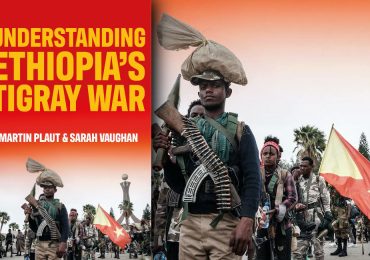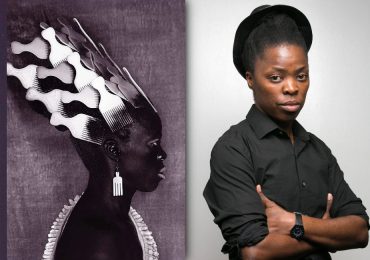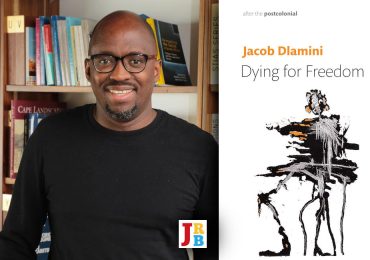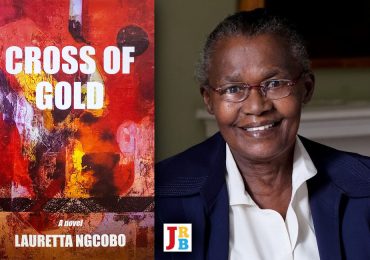The JRB presents an excerpt from Vijay Prashad‘s Washington Bullets.
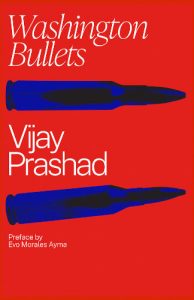
Washington Bullets
Vijay Prashad
Inkani Books, 2022
‘BRING DOWN MORE US AIRCRAFT’
Estados Unidos: el país donde
La libertad es una estatua.
United States: the country where
Liberty is a statue.
—Nicanor Parra, Artefactos, 1972
What is the price of an assassin’s bullet? Some dollars here and there. The cost of the bullet. The cost of a taxi ride, a hotel, an airplane, the money paid to hire the assassin, his silence purchased through a payment into a Swiss bank, the cost to him psychologically for having taken the life of one, two, three, or four. But the biggest price is not paid by the intelligence services. The biggest price is paid by the people. For in these assassinations, these murders, this violence of intimidation, it is the people who lose their leaders in their localities. A peasant leader, a trade-union leader, a leader of the poor. The assassinations become massacres, as people who are in motion are cut down. Their confidence begins to falter. Those who came from them, organised them, spoke from them, either now dead or, if not dead, too scared to stand up, too isolated, too rattled, their sense of strength, their sense of dignity, compromised by this bullet or that. In Indonesia, the price of the bullet was in the millions; in Guatemala, the tens of thousands. The death of Lumumba damaged the social dynamic of the Congo, muzzling its history. What did it cost to kill Chokri Belaïd (Tunisian, 1964–2013) and Ruth First (South African, 1925–1982), what did it take to kill Amílcar Cabral (Bissau-Guinean and Cape Verdean, 1924–1973) and Berta Cáceres (Honduran, 1971–2016)? What did it mean to suffocate history so as to preserve the order of the rich? Each bullet fired struck down a Revolution and gave birth to our present barbarity. This is a book about bullets.
Many of these bullets are fired by people who have their own parochial interests, their petty rivalries and their small-minded gains. But more often than not, these have been Washington’s bullets. These are bullets that have been shined by the bureaucrats of the world order who wanted to contain the tidal wave that swept from the October Revolution of 1917 and the many waves that whipped around the world to form the anti-colonial movement. The first wave crested in the Union of Soviet Socialist Republics (USSR) and in Eastern Europe, and it was this wave that provoked the Cold War and the East–West conflict; the other wave went from Vietnam and China to Cuba, from Indonesia to Chile, and this wave engendered the far more deadly North–South or West–South conflict. It was clear to the United States, as the leader of the West, that no muscular conflict would be possible along the East–West axis, that once the USSR (1949) and China (1964) tested their nuclear weapons no direct war would be possible. The battlefield moved from along the Urals and the Caucasus into Central and South America, into Africa, and into Asia—into, in other words, the South. Here, in the South where raw materials are in abundance, decolonisation had become the main framework by the nineteen-forties. Washington’s bullets that pointed towards the USSR remained unused, but its bullets were fired into the heart of the South. It was in the battlefields of the South that Washington pushed against Soviet influence and against the national liberation projects, against hope and for profit. Liberty was not to be the watchword of the new nations that broke away from formal colonialism; liberty is the name of a statue in New York harbour.
Imperialism is powerful: it attempts to subordinate people to maximise the theft of resources, labour, and wealth. Anyone who denies the absolute obscenity of imperialism needs to find another answer to the fact that the richest twenty-two men in the world have more wealth than all the women in Africa, or that the richest one per cent have more than twice as much wealth as 6.9 billion people. You would have to have an answer for the reason why we continue to suffer from hunger, illiteracy, sickness, and indignities of various kinds. You could not simply say that there are no resources to solve these problems, given that tax havens hold at least $32 trillion—more than the total value of gold that has been brought to the surface. It is easy to bomb a country; harder yet to solve the pressing problems of its peoples. Imperialism’s only solution to these problems is to intimidate people and to create dissension amongst people.
But liberty cannot be so easily contained. That is why, despite the odds, people continue to aspire for alternatives, continue to organise themselves, continue to attempt to win a new world—all this despite the possibility of failure. If you do not risk failure, you cannot taste the fruit of victory.
~~~
- Vijay Prashad is a historian, journalist, commentator and a Marxist intellectual. He is a writing fellow and chief correspondent at Globetrotter, a project of the Independent Media Institute. He is the director of Tricontinental: Institute for Social Research and chief editor of LeftWord Books. He is the author of several books, notably The Darker Nations (2007).
Publisher information
Washington Bullets is written in the best traditions of Marxist journalism and history-writing. It is a book of fluent and readable stories, full of detail about US imperialism, but never letting the minutiae obscure the larger political point. It is a book that could easily have been a song of despair—a lament of lost causes; it is, after all, a roll call of butchers and assassins; of plots against people’s movements and governments; of the assassinations of socialists, Marxists, communists all over the Third World by the country where liberty is a statue.
Despite all this, Washington Bullets is a book about possibilities, about hope, about genuine heroes. One such is Thomas Sankara of Burkina Faso—also assassinated—who said: ‘You cannot carry out fundamental change without a certain amount of madness. In this case, it comes from nonconformity, the courage to turn your back on the old formulas, the courage to invent the future. It took the madmen of yesterday for us to be able to act with extreme clarity today. I want to be one of those madmen. We must dare to invent the future.’
Washington Bullets is a book infused with this madness, the madness that dares to invent the future.

